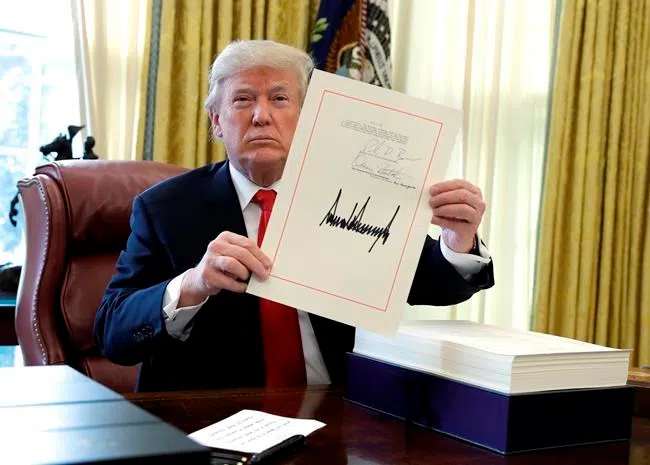
With stroke of pen signing major bill, Trump caps a consequential first year
WASHINGTON — Love him, hate him, debate all you want about him. But with the stroke of a pen Friday, before he hopped onto a helicopter and left Washington for the holidays, Donald Trump cemented one truth about his presidency.
He had a consequential first year.
A lengthy legislative dry spell that had prompted so much chortling from critics and consternation from colleagues ended Friday as he signed into law his first major piece of legislation, passed by Congress earlier this week.
That pen-stroke codified the biggest corporate tax cuts in decades. It upended the health system, dismantling a key pillar propping up the Obamacare insurance markets. It cut most Americans’ taxes for a few years, added an estimated five per cent to the national debt and allowed the oil industry to indulge a long-thwarted dream — to drill, baby drill in Alaska’s wildlife refuge.


